It’s finally here! Taylor Swift’s much anticipated Eras tour arrived in Australia this week, and so, after months of waiting, young fans are frantically tying friendship bracelets together and brushing up on their fan chants.
But take a closer look at those taking their (expensive) stadium seats in Melbourne and Sydney. There will be plenty of 40-, 50-, 60-somethings singing along too — and they aren’t all there with their kids.
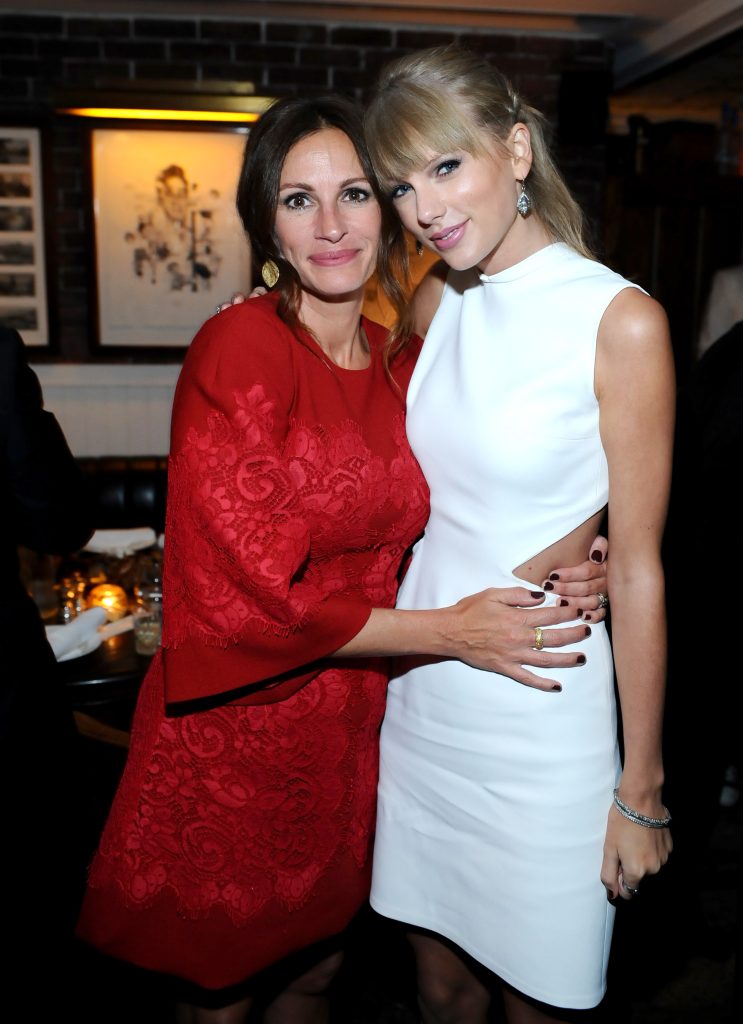
While 45 per cent of Swift’s US fans are millennials — like the 34-year-old herself — 21 per cent are Gen X and 25 per cent are Boomers, according to a 2023 survey. That means nearly half of her millions of fans are likely over 45.
From our partners:
Middle-aged Swifties aren’t shy about their adoration. In the US, Attorney-General Merrick Garland, 72, works Swift’s song lyrics into conversations and legal arguments, and reportedly has almost all of her albums on display in his office.
Oscar-winning actor Julia Roberts, 56, loves her so much that the first concert she took her kids to was Swift’s 1989 tour in 2015. And recently the self-dubbed Silver Swifties were photographed shaking it off in their retirement homes.
In Australia, AMP chief economist Shane Oliver, actor Toni Collette, former foreign affairs minister Julie Bishop and academic Larissa Behrendt have all declared themselves to be Swift fans.
Even 60-year-old Prime Minister Anthony Albanese is reportedly angling for tickets to the upcoming shows.
So what is it about Swift’s lovelorn ballads, kitchen bops and revenge anthems, spread across 14 albums, that appeal so intensely to middle-aged people?
Ageless and timeless
Amy DeSalvo Umanoff, one of the almost 20,000 members of the GenX Swifties Facebook group, says her love of Swift’s music comes down to the relatability of her lyrics.
“It’s so easy to remember the feelings her lyrics conjure up,” she says. “It’s easy to put yourself right back into her shoes. She writes for herself but also all of us, no matter your age or where you are in your own life.”
Fellow member Courtney Thomas Joyce agrees.
“I feel like her lyrics are ageless and timeless. I can transport myself to that moment where I felt the same thing that she felt. She takes small moments and makes them normal, human, and helps us feel not so alone.”
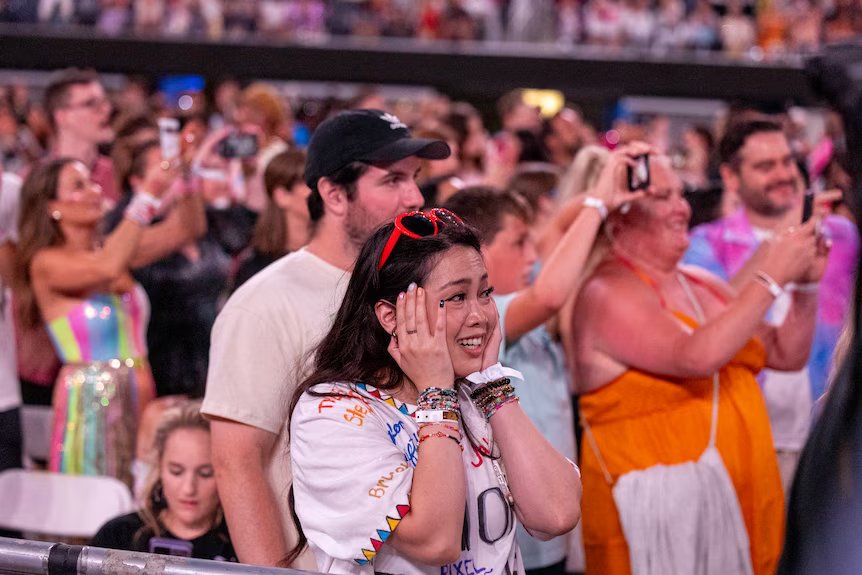
Writing universally relatable lyrics is something Swift has always been good at.
In a 2008 New Yorker article entitled Prodigy, published when Swift was only 19 and just before her second album Fearless was released, music critic Sasha Frere-Jones compared her “precocious wisdom” to that of Prince, Elvis Costello and Hank Williams.
“You could also give a Swift composition like ‘Our Song’ to someone 20 years older and it could work just fine,” he wrote. “The concerns of kids aren’t necessarily juvenile — just their reactions.
Bridging this gap is the trick of pop music; when people sing ‘Love Me Do’ to themselves on their way to a date 10 years on the other side of their second divorce, it’s a sign that a young songwriter has got to a universal truth. …
People who aren’t old enough to have lived the songs they’ve written nevertheless know how the song embodying that life should go.”
The album that grabbed many middle-aged fans’ attention was the melancholic Folklore, released in July 2020 when much of the world was in lockdown.
That’s when Australia Institute economist Greg Jericho, 52, got hooked.
“It hit me exactly where I needed to be,” he says.
He said prior to that album, he’d mistakenly believed everything Swift wrote was “autobiographical and … always about her break-ups”. But Folklore “wasn’t that kind of an album”.
Indeed, the critically acclaimed album, and its sister album Evermore, saw Swift explore a more indie sound, expand on the subjects of her lyrics and collaborate with alternative music stars like Bon Iver and The National.
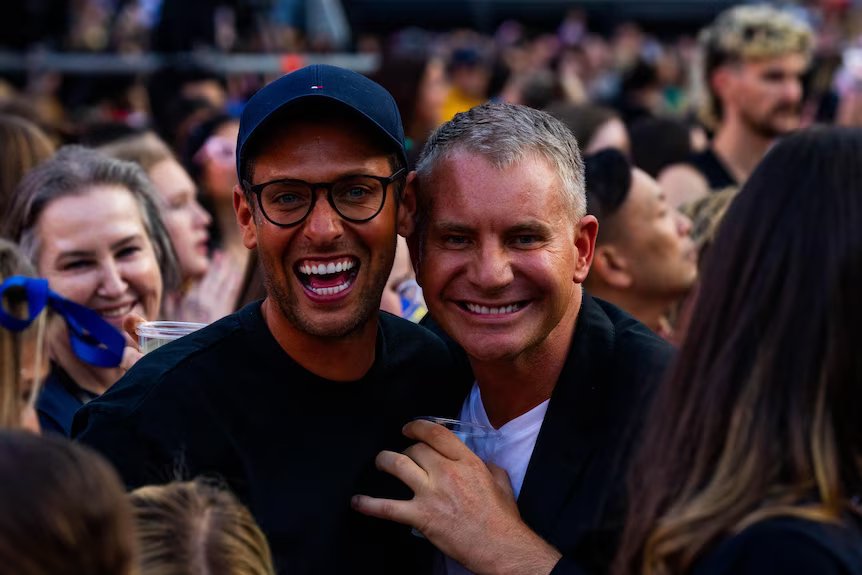
Academic Jennifer Beckett, one of the convenors of Melbourne’s recent Swiftposium, describes Swift as a “life writer”, comparing her to Dolly Parton, another country music star who became more mainstream and is adept at telling stories in song.
“Storytelling is the way that we understand the world. So [it’s good] to have an artist like Taylor Swift, who’s so good at storytelling, help fans to understand the world that they’re in, and to make sense of the changes that they’ve gone through and how they’ve grown up or to re-understand something about themselves,” Dr Beckett says.
Swift’s melodies themselves are sometimes reminiscent of an earlier time.
“She does have quite an 80s aesthetic in her work, even though it’s got the pop aesthetic of now in her lyrics,” says composer Caerwen Martin, pointing to songs like Wildest Dreams and Style from Swift’s album 1989.
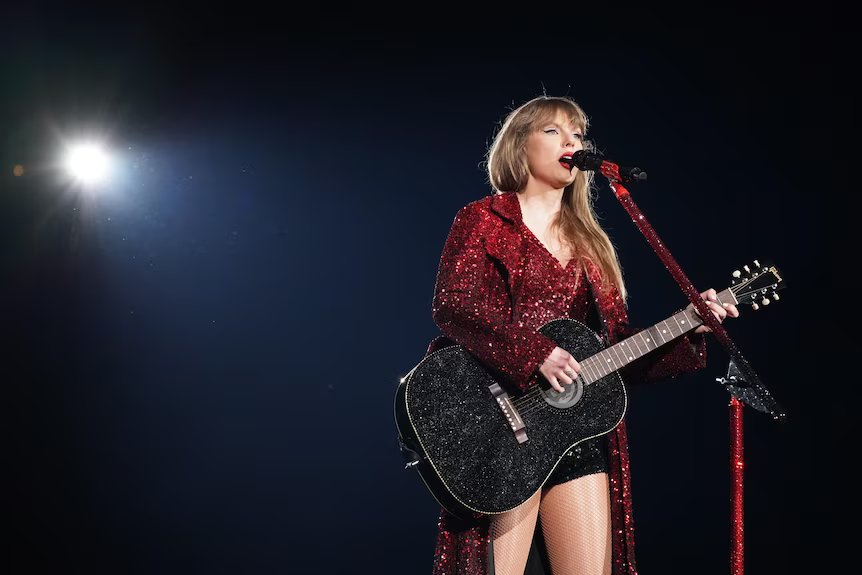
Similarly, more mature fans appreciate her as an old-school singer-songwriter, Jericho says.
“I think actually playing music live, playing guitar, is something that older people like me …. can see something … that they saw in musicians that they’d liked growing up.”
And for many, it’s all about singing along to her catchy tunes.
“Her music is just so uplifting,” says 50-something Leigh McCluskie.
“I’m a huge fan of dancing in the kitchen, I think that’s what keeps you young, so I credit Taylor with keeping me young at the moment.”
Finding common ground
Much has been said about the sense of community that younger Swifties feel, but there’s something in that for older fans too.
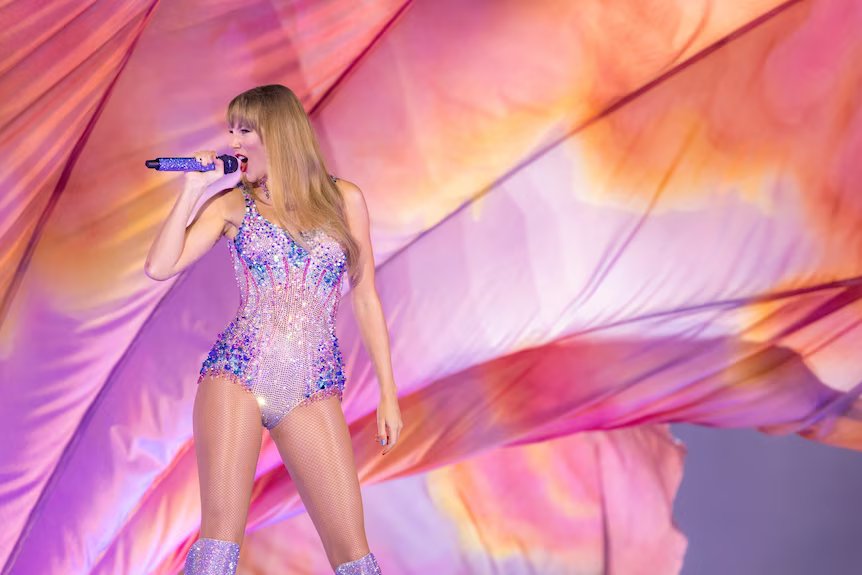
“What I think appeals to older women about Taylor, [about] being part of her fandom or saying you like Taylor Swift songs, is it comes with less judgement than it does with other younger demographics,” McCluskie says.
“You’re not looked down on, they don’t go, ‘You old woman, what are you doing?’
“It’s a community and it doesn’t seem to exclude people based on age, which I love. I do think that comes very much from the way Taylor conducts herself and through the messages in her music.”
Canadian Carol Hansson, who runs that GenX Swifties Facebook group, agrees.
“[I enjoy] the fandom itself and how kind and generous and just funny everyone is,” she says.
Some of the GenX Swifties say they bond with their kids or even their grandkids via her music. For example, Kathey Reilly Hunt says she first learned about Swift from her young niece in 2006 and it grew from there.
“[Now] for my grandkids, I am the one leading the way. I love talking about the songs. Now we look forward to singing them together,” she says.
McCluskie agrees. She and her teenage daughter regularly dissect the intricacies of Swift’s songs, and she can see how other mums use Swift’s music to connect with their kids.
“If you can find common ground in that and it gives you a language to talk, or just have fun together … it’s a bonus for a lot of women,” she says.
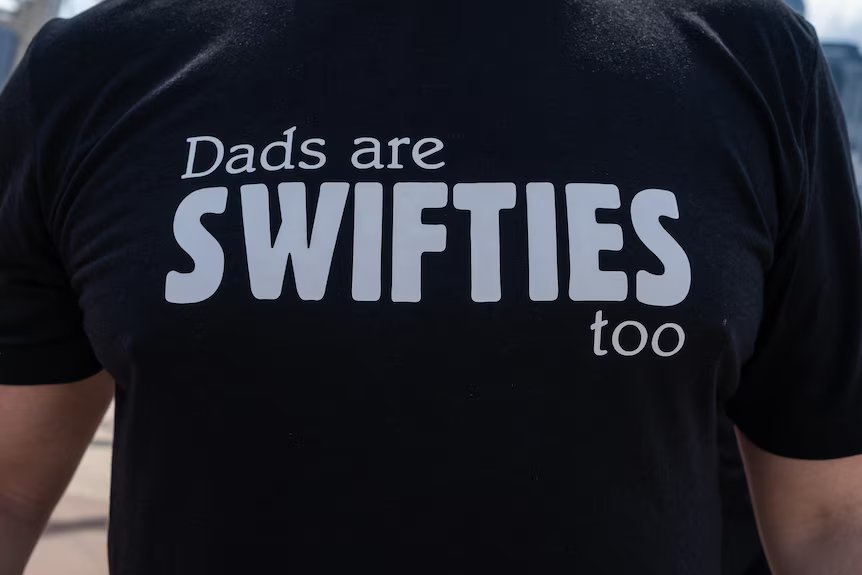
It’s not just a maternal bond.
Federal MP Andrew Wallace, 55, is such a big Swiftie, he petitioned her to make a stop in Queensland on the Eras tour — to no avail.
He nominates All Too Well (yes, the 10-minute version) as his favourite song because he loves the music, the lyrics and the break-up tale behind the song.
“Just as the father of four daughters, it hit a chord with me. You know, just that really vulnerable age of young women.”
He can see parallels between Swift and his daughters’ lives, and the challenges they face.
“I respect her as someone who has grown through and lived through an eating disorder. My family has been through a similar situation,” he says.
‘She’s doing it her way’
For many middle-aged fans, watching Swift overcome challenges they’ve faced in their own lives is inspiring and heartening.
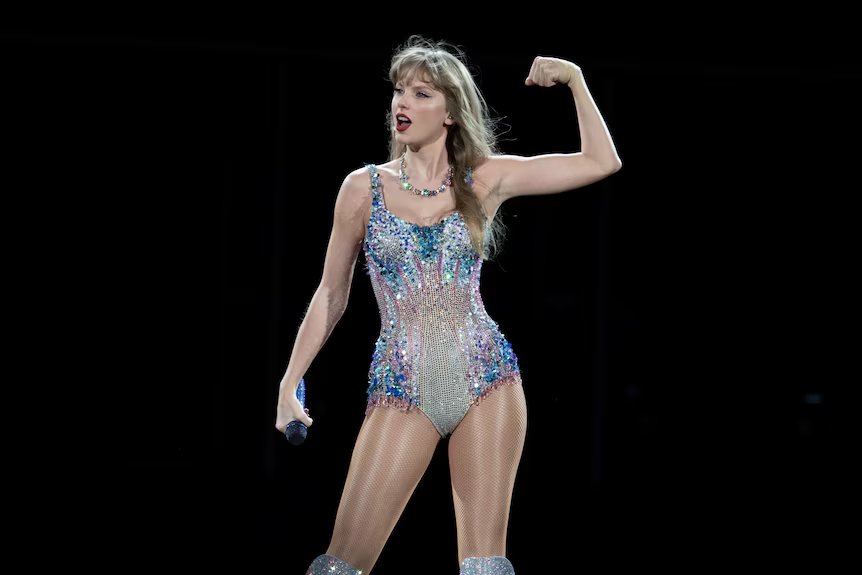
More than one GenX Swifties describes her as a “badass” for the way she stands up for herself in a traditionally male-dominated music industry, whether that be counter-suing the DJ who groped her in 2016, taking back control of her work after her back catalogue was sold against her wishes, or pushing back against misogynistic criticism.
“She gives voice to GENERATIONS of women who are tired of ‘that 1950’s shit they want from us!'” says Christina Cook [paraphrasing Swift’s song Lavender Haze].
“We’ve watched her handle herself with grace while being attacked for simply existing. She’s also a strong advocate for disenfranchised communities.”
Hansson agrees: “She’s doing it her way and she’s not apologetic about it. And it’s amazing, being able to see a strong woman persevere, and not take any flack for it.”
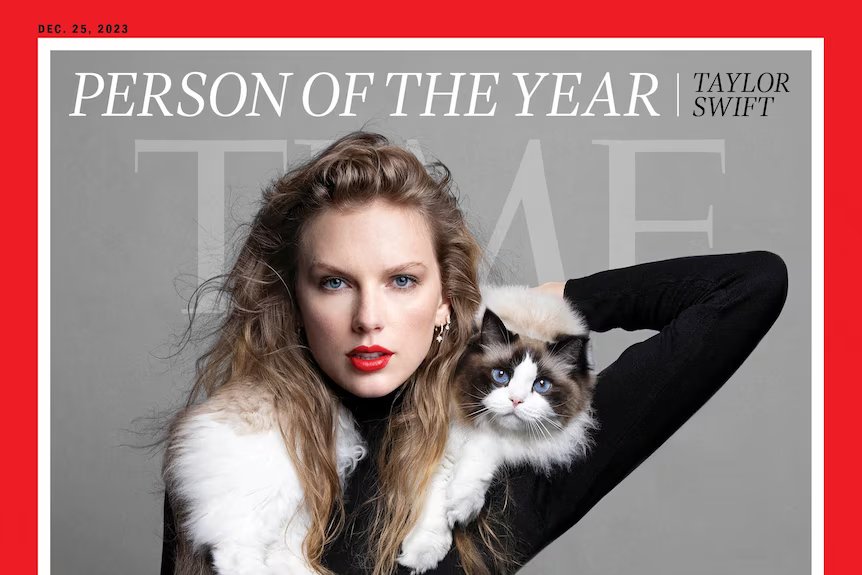
Indeed, Swift’s success is breathtaking. She’s reportedly worth more than $US1billion thanks to income from her Eras tour, music and streaming deals.
At the end of 2023, she was named Time’s Person of the Year. And in February she made history at the Grammys as the first person to take home a fourth Album of the Year award, overtaking Stevie Wonder, Paul Simon and Frank Sinatra.
As someone who knows how challenging the music industry can be, Caerwen Martin admires what Swift has accomplished.
“So many of us are cheering that she’s managed to do so well as a businesswoman in the arts,” she says.
“Her business acumen is astonishing. It really is something to step back and admire, because making money out of music is not as easy as people might say.”
That she’s retained control of her artistic vision is also impressive, Martin says, given a male producer often has so much sway in a recording session that female artists can walk out feeling as if the end result is no longer their work.
“I definitely cheered when I was hearing the stats about how much she’d made and how she’d done it and how she had released things. I’m just like, ‘Oh, man, you’ve done it. You’re very clever’.”
Martin has another theory as to why Swift appeals, particularly to women over 45.
She says for those who grew up in the 1980s, many of the musical icons of that time were highly sexualised. However Swift has what Martin describes as a “very boundaried, almost anti-overtly sexual” persona.
“When we were young … there was so much pressure towards the feminine sexuality overtness that perhaps we weren’t really wanting.”
“[Swift’s] allowed to be herself without having to adhere to either a man or a male gaze and be professional and be successful.
“And she’s allowed to have all of those things that we kind of dreamed of being and couldn’t access, but can now … now we’re older.”
Finally those who are parents see Swift as a powerful role model for their children.
“[Swift] knows that when she stands up for herself that the message is going to her fans — because she’s very fan-focused — [is that] she wants them to emulate what she’s doing, she wants them to know that it’s OK to stand up for what’s right. … It’s a really positive thing for the next generation … it gives them power,” McCluskie says.
Martin agrees, remembering how pleased she was hearing her kids singing along to Swift’s boppy LGBTQI+ rights anthem, You Need to Calm Down.
“That point of view was so beautiful and gratifying as a mum to hear my kids so validated. So there’s also that very, very strong appeal for women my age.
“Not everyone has children. But those of us who do really find it really gratifying, that there is an artist that our children can love that is safe…. [and who is] a strong advocate as well for things that we really care about.”
By: Alexandra Spring
Originally published at: ABC News
For enquiries, product placements, sponsorships, and collaborations, connect with us at hello@zedista.com. We'd love to hear from you!
Our humans need coffee too! Your support is highly appreciated, thank you!


